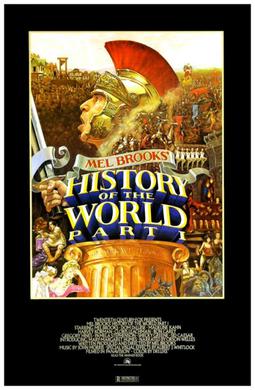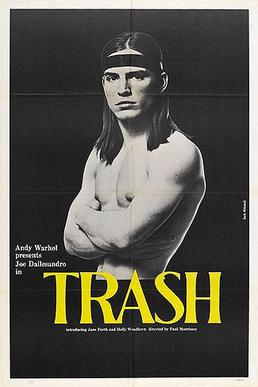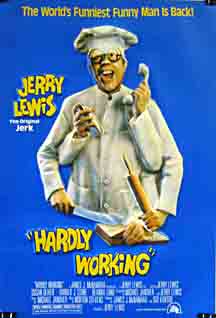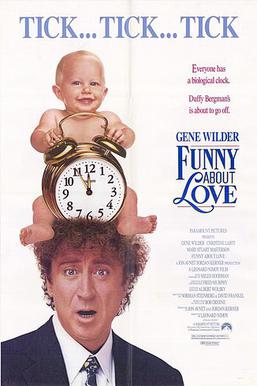
Blazing Saddles is a 1974 American satirical postmodernist Western black comedy film directed by Mel Brooks, who co-wrote the screenplay with Andrew Bergman, Richard Pryor, Norman Steinberg and Alan Uger, based on a story treatment by Bergman. The film stars Cleavon Little and Gene Wilder. The film received generally positive reviews from critics and audiences, was nominated for three Academy Awards and is ranked number six on the American Film Institute's 100 Years...100 Laughs list.

Roger Joseph Ebert was an American film critic, film historian, journalist, essayist, screenwriter, and author. He was a film critic for the Chicago Sun-Times from 1967 until his death in 2013. Ebert was known for his intimate, Midwestern writing style and critical views informed by values of populism and humanism. Writing in a prose style intended to be entertaining and direct, he made sophisticated cinematic and analytical ideas more accessible to non-specialist audiences. Ebert frequently endorsed foreign and independent films he believed would be appreciated by mainstream viewers, championing filmmakers like Werner Herzog and Errol Morris. In 1975, Ebert became the first film critic to win the Pulitzer Prize for Criticism. Neil Steinberg of the Chicago Sun-Times said Ebert "was without question the nation's most prominent and influential film critic," and Kenneth Turan of the Los Angeles Times called him "the best-known film critic in America."

The Firesign Theatre was an American surreal comedy troupe who first appeared on November 17, 1966, in a live performance on the Los Angeles radio program Radio Free Oz on station KPFK FM. They continued appearing on Radio Free Oz, which later moved to KRLA 1110 AM and then KMET FM, through February 1969. They produced fifteen record albums and a 45 rpm single under contract to Columbia Records from 1967 through 1976, and had three nationally syndicated radio programs: The Firesign Theatre Radio Hour Hour [sic] in 1970 on KPPC-FM; and Dear Friends (1970–1971) and Let's Eat! (1971–1972) on KPFK. They also appeared in front of live audiences, and continued to write, perform, and record on other labels, occasionally taking sabbaticals during which they wrote or performed solo or in smaller groups.

Eugene Kal Siskel was an American film critic and journalist for the Chicago Tribune. He is best known for co-hosting various movie review television series with colleague Roger Ebert.

History of the World, Part I is a 1981 American comedy film written, produced, and directed by Mel Brooks. Brooks also stars in the film, playing five roles: Moses, Comicus the stand-up philosopher, Tomás de Torquemada, King Louis XVI, and Jacques, le garçon de pisse. The large ensemble cast also features Sid Caesar, Shecky Greene, Gregory Hines, Charlie Callas; and Brooks regulars Ron Carey, Dom DeLuise, Madeline Kahn, Harvey Korman, Cloris Leachman, Andreas Voutsinas, and Spike Milligan.

Don't Crush That Dwarf, Hand Me the Pliers is the Firesign Theatre's third comedy album, released by Columbia Records in July 1970. In 1983, The New Rolling Stone Record Guide called it "the greatest comedy album ever made". It was nominated for a Hugo Award for Best Dramatic Presentation in 1971 by the World Science Fiction Society. In 2005, the US Library of Congress added the album to the National Recording Registry and called the Firesign Theatre "the Beatles of comedy."
Gene Siskel and Roger Ebert, collectively known as Siskel & Ebert, were American film critics known for their partnership on television lasting from 1975 to Siskel's death in 1999.

Real Life is a 1979 American comedy film starring Albert Brooks, who also co-authored the screenplay. It is a spoof of the 1973 reality television program An American Family and portrays a documentary filmmaker named Albert Brooks who attempts to live with and film a dysfunctional family for one full year.

How Can You Be in Two Places at Once When You're Not Anywhere at All is the second comedy album recorded by the Firesign Theatre. It was originally released in July 1969 by Columbia Records.

Proctor and Bergman was a comedy duo consisting of Philip Proctor and Peter Bergman. The two started performing in 1973 while taking a break from the four-man comedy act The Firesign Theatre, with the comedy album "TV or Not TV", on which they based a short film in 1978. They reunited the Firesign Theatre in 1974, but resumed their duo act in 1975 during a second temporary split of the Firesigns, and continued to perform as a duo during several breaks of the Firesign Theatre until Bergman's death in 2012.

Trash is a 1970 American drama film directed and written by Paul Morrissey and starring Joe Dallesandro, Holly Woodlawn and Jane Forth. Dallesandro had previously starred in several other Andy Warhol/Paul Morrissey films such as The Loves of Ondine, Lonesome Cowboys, San Diego Surf, and Flesh.

Play It Again, Sam is a 1972 American comedy film written by and starring Woody Allen, based on his 1969 Broadway play of the same title. The film was directed by Herbert Ross, instead of Allen, who usually directs his own written work.

Scenes from a Mall is a 1991 American comedy film directed by Paul Mazursky, written by Mazursky and Roger L. Simon, and starring Bette Midler and Woody Allen. The title is a play on Ingmar Bergman's Scenes from a Marriage, and the film itself features similar themes of marital disintegration.

Dreamer is a 1979 American sports film directed by Noel Nosseck, written by Larry Bischof and James Proctor, and starring Tim Matheson, Susan Blakely and Jack Warden. It was released theatrically on April 27, 1979, and was released by 20th Century Fox through Magnetic Video on home video.

Hardly Working is a 1980 American comedy film directed by, co-written by and starring Jerry Lewis and Susan Oliver, filmed in 1979, released in Europe in 1980 and then in the United States on April 3, 1981 through 20th Century Fox. This film marks the final theatrical release for Oliver, as the rest of her career only featured on several television movies and series, before her death in 1990.
Annabel Jankel, also known as AJ Jankel, is a British film and TV director who first came to prominence as a music video director and the co-creator of the pioneering cyber-character Max Headroom and as co-director of the film adaptation of Super Mario Bros. She is the sister of musician and songwriter Chaz Jankel, who is best known as a member of new wave band Ian Dury & The Blockheads.

Heartbreak Hotel is a 1988 American comedy film written and directed by Chris Columbus, and stars David Keith and Tuesday Weld. Set in 1972, the story deals with one of the many "legends" involving Elvis Presley (Keith) about his fictional kidnapping, and his subsequent redemption from decadence.
Neal Israel is an American actor, screenwriter, film and television producer, and director best known for his comedic work in the 1980s for films such as Police Academy, Real Genius, and Bachelor Party.

Funny About Love is a 1990 American romantic comedy film directed by Leonard Nimoy and starring Gene Wilder in his first romantic lead. With a screenplay by Norman Steinberg and David Frankel, the film is based on the article "Convention of the Love Goddesses" in Esquire Magazine by Bob Greene.
Nick Danger is a fictional character created by the comedy group The Firesign Theatre, portrayed by Phil Austin. Danger is a parody of the hard-boiled detective, and is often announced as "Nick Danger, Third Eye", a parody of the term private eye. Danger stories involve stereotypical film noir situations, including mistaken identity, betrayal, and femmes fatales. Danger originally appears on the 1969 album How Can You Be in Two Places at Once When You're Not Anywhere at All, and is reprised in the 1979 Nick Danger: The Case of the Missing Shoe, 1984 The Three Faces of Al, and 2001 The Bride of Firesign.
He's based on the [Dashiell] Hammett Sam Spade character, but as I got more into writing him over the years, he's become much more like [Philip] Marlowe. I love [Raymond] Chandler's writing.
















